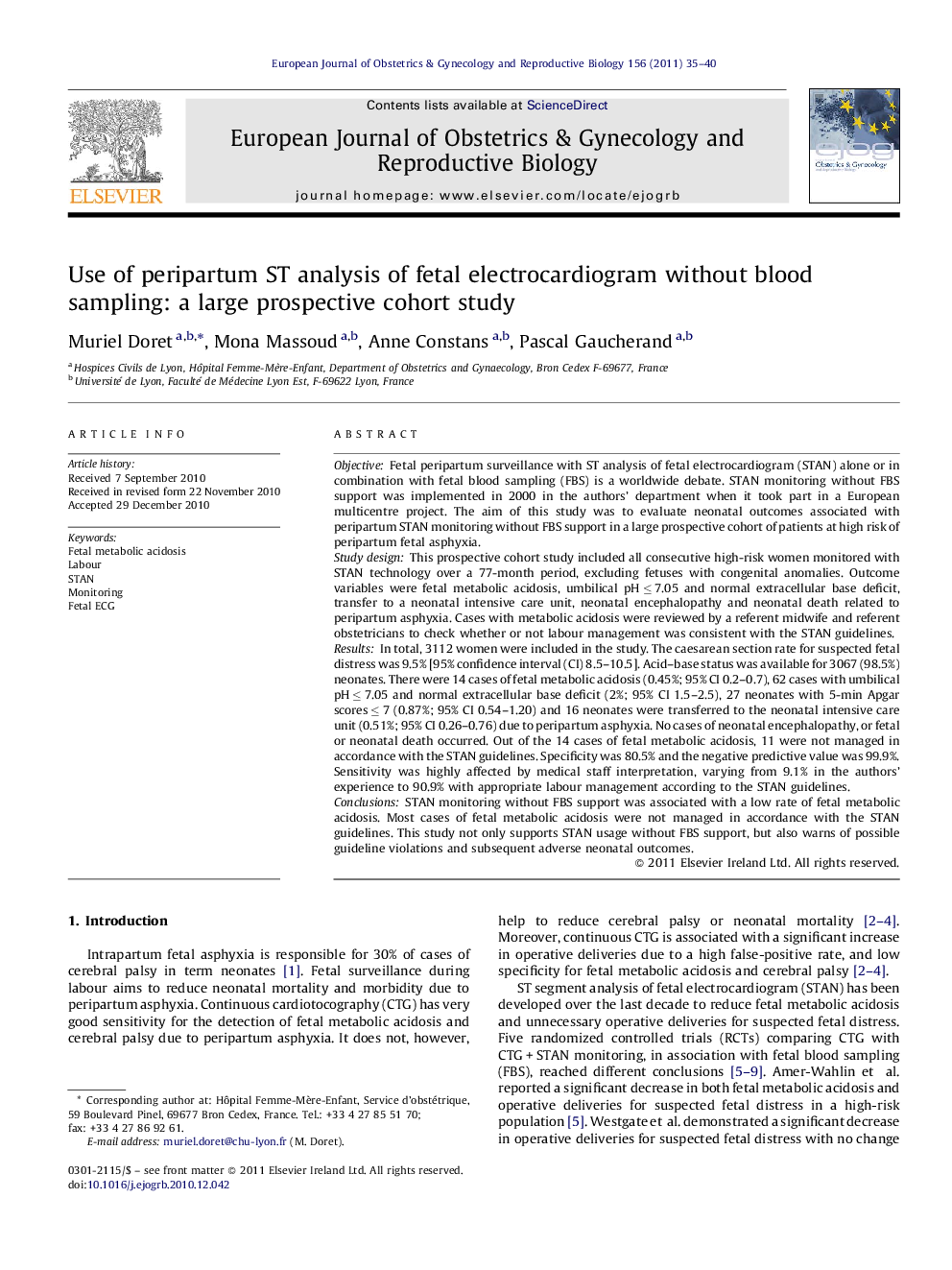| کد مقاله | کد نشریه | سال انتشار | مقاله انگلیسی | نسخه تمام متن |
|---|---|---|---|---|
| 3921073 | 1599841 | 2011 | 6 صفحه PDF | دانلود رایگان |

ObjectiveFetal peripartum surveillance with ST analysis of fetal electrocardiogram (STAN) alone or in combination with fetal blood sampling (FBS) is a worldwide debate. STAN monitoring without FBS support was implemented in 2000 in the authors’ department when it took part in a European multicentre project. The aim of this study was to evaluate neonatal outcomes associated with peripartum STAN monitoring without FBS support in a large prospective cohort of patients at high risk of peripartum fetal asphyxia.Study designThis prospective cohort study included all consecutive high-risk women monitored with STAN technology over a 77-month period, excluding fetuses with congenital anomalies. Outcome variables were fetal metabolic acidosis, umbilical pH ≤ 7.05 and normal extracellular base deficit, transfer to a neonatal intensive care unit, neonatal encephalopathy and neonatal death related to peripartum asphyxia. Cases with metabolic acidosis were reviewed by a referent midwife and referent obstetricians to check whether or not labour management was consistent with the STAN guidelines.ResultsIn total, 3112 women were included in the study. The caesarean section rate for suspected fetal distress was 9.5% [95% confidence interval (CI) 8.5–10.5]. Acid–base status was available for 3067 (98.5%) neonates. There were 14 cases of fetal metabolic acidosis (0.45%; 95% CI 0.2–0.7), 62 cases with umbilical pH ≤ 7.05 and normal extracellular base deficit (2%; 95% CI 1.5–2.5), 27 neonates with 5-min Apgar scores ≤ 7 (0.87%; 95% CI 0.54–1.20) and 16 neonates were transferred to the neonatal intensive care unit (0.51%; 95% CI 0.26–0.76) due to peripartum asphyxia. No cases of neonatal encephalopathy, or fetal or neonatal death occurred. Out of the 14 cases of fetal metabolic acidosis, 11 were not managed in accordance with the STAN guidelines. Specificity was 80.5% and the negative predictive value was 99.9%. Sensitivity was highly affected by medical staff interpretation, varying from 9.1% in the authors’ experience to 90.9% with appropriate labour management according to the STAN guidelines.ConclusionsSTAN monitoring without FBS support was associated with a low rate of fetal metabolic acidosis. Most cases of fetal metabolic acidosis were not managed in accordance with the STAN guidelines. This study not only supports STAN usage without FBS support, but also warns of possible guideline violations and subsequent adverse neonatal outcomes.
Journal: European Journal of Obstetrics & Gynecology and Reproductive Biology - Volume 156, Issue 1, May 2011, Pages 35–40